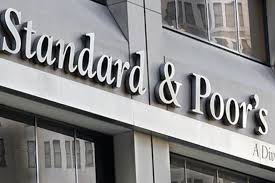
Citing the weighing down of growth and debt prospects of Italy by the country’s government’s policy plans, the outlook of the country’s economy was changed to negative from stable by Standard & Poor's even though it left the nation’s sovereign debt rating unchanged.
The ratings for the debt was kept unchanged at BBB by S&P which is just two stages over junk and this has come as a relief for the government. The Italy is confrontation with the European Commission over its 2019 budget and Moody’s downgraded the country’s debt last week.
The comments made by S&P were however very tough for the government as the ratings agency noted that the public debt of the country would not come down as planned and that the fiscal deficit for next year would be more than the target set by Rome.
"The Italian government's economic and fiscal policy settings are weighing on the country's economic growth prospects, a critical driver of government debt-to-GDP trajectory," S&P said.
"In our view, the government's planned economic and fiscal policy settings have eroded investor confidence, as reflected by a rising yield on government debt," it said. The rating agency also issued a warning of potential problems for the banks of the country which are owners of huge amounts debts of the Italian government.
The ratings agency opined that the capacity to fund the economy of the banks would come down if there is a continued rise in the yields on the banks' sovereign bond holdings.
Earlier in the week, Italy was asked to present a fresh budget within three weeks to the European Commission after the EU administrative arm rejected the proposed budget of the country.
The budget was rejected because it set a fiscal deficit target of 2.4 per cent of GDP compared to the current year’s target of 1.8 per cent which is against EU norms which mandate the the member countries should steadily bring down their budget deficit towards balanced budget.
According to the forecast of S&P, Italy’s budget deficit for 2019 would be at 2.7 per cent of GDP and the ratings agency said that the very large public debt of the country would be stable for the next three years at around the 128.5 per cent mark. The public debt of Italy last year was 131.2 per cent of GDP.
The agency also rejected the projected economic growth of the economy as proposed by the coalition government of being around 1.5 percent next year and 1.6 percent in 2020 and termed them to be "overly optimistic". The agency also lowered its own forecast of growth for the economy from 1.4 per cent to 1.1 per cent for both years.
"We expect the demand stimulus from the government's budgetary measures will likely be short-lived," S&P said.
(Source:www.ft.com)
The ratings for the debt was kept unchanged at BBB by S&P which is just two stages over junk and this has come as a relief for the government. The Italy is confrontation with the European Commission over its 2019 budget and Moody’s downgraded the country’s debt last week.
The comments made by S&P were however very tough for the government as the ratings agency noted that the public debt of the country would not come down as planned and that the fiscal deficit for next year would be more than the target set by Rome.
"The Italian government's economic and fiscal policy settings are weighing on the country's economic growth prospects, a critical driver of government debt-to-GDP trajectory," S&P said.
"In our view, the government's planned economic and fiscal policy settings have eroded investor confidence, as reflected by a rising yield on government debt," it said. The rating agency also issued a warning of potential problems for the banks of the country which are owners of huge amounts debts of the Italian government.
The ratings agency opined that the capacity to fund the economy of the banks would come down if there is a continued rise in the yields on the banks' sovereign bond holdings.
Earlier in the week, Italy was asked to present a fresh budget within three weeks to the European Commission after the EU administrative arm rejected the proposed budget of the country.
The budget was rejected because it set a fiscal deficit target of 2.4 per cent of GDP compared to the current year’s target of 1.8 per cent which is against EU norms which mandate the the member countries should steadily bring down their budget deficit towards balanced budget.
According to the forecast of S&P, Italy’s budget deficit for 2019 would be at 2.7 per cent of GDP and the ratings agency said that the very large public debt of the country would be stable for the next three years at around the 128.5 per cent mark. The public debt of Italy last year was 131.2 per cent of GDP.
The agency also rejected the projected economic growth of the economy as proposed by the coalition government of being around 1.5 percent next year and 1.6 percent in 2020 and termed them to be "overly optimistic". The agency also lowered its own forecast of growth for the economy from 1.4 per cent to 1.1 per cent for both years.
"We expect the demand stimulus from the government's budgetary measures will likely be short-lived," S&P said.
(Source:www.ft.com)





